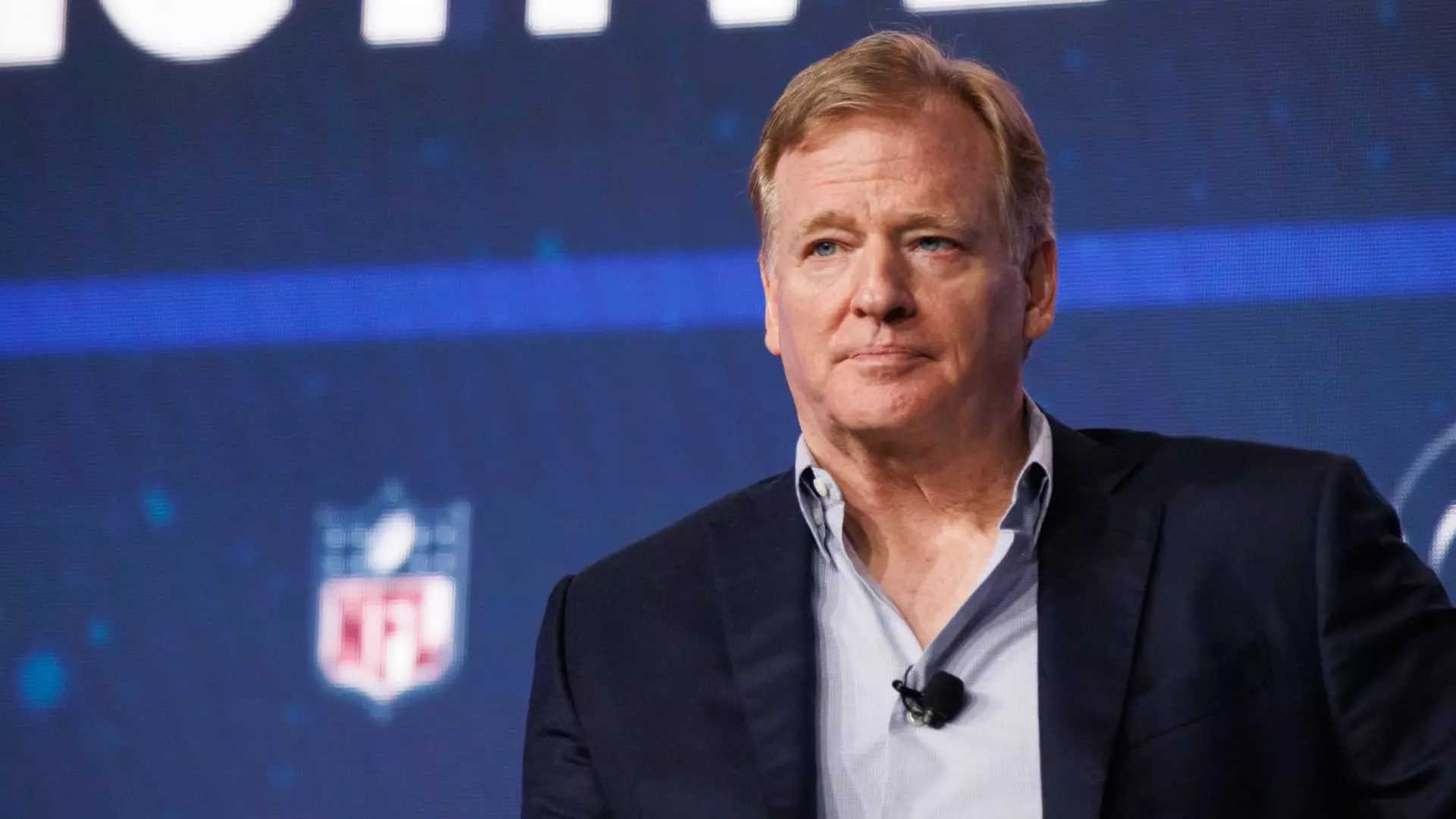The National Football League is considering a groundbreaking shift in its ownership policies, with Commissioner Roger Goodell hinting at the possibility of allowing minority private equity ownership for its 32 teams. This move comes in response to the changing landscape of sports ownership and the financial challenges faced by potential team owners in a rapidly growing market.
Goodell mentioned in an exclusive CNBC interview that the NFL is looking to modernize its ownership structure to keep pace with evolving trends in the sports industry. While other major U.S. sports leagues have already embraced private equity ownership to a larger extent, the NFL has traditionally favored individual or family ownership over institutional funds. However, with franchise valuations skyrocketing due to lucrative media deals, the league is exploring the option of allowing private equity firms to own up to 10% of a team.
Josh Harris, co-founder of private equity firm Apollo Global Management, made headlines by leading a group that purchased the Washington Commanders for a record-breaking $6.05 billion. This unprecedented deal shed light on the challenges of traditional team ownership, where writing billion-dollar equity checks is beyond the reach of all but the wealthiest individuals. Harris’s success in raising capital from a diverse group of investors, including former sports icons and business leaders, has sparked discussions about the potential benefits of private equity involvement in professional sports.
Allowing private equity firms to hold minority stakes in NFL teams raises questions about decision-making power and the dynamics of ownership. While these investors may lack control over team operations, their financial incentives and exit strategies could influence the motivations behind owning a sports franchise. The limitations on decision-making may deter some wealthy individuals from pursuing ownership opportunities, as they are accustomed to being actively involved in their investments.
Private equity firms bring a wealth of experience in managing investments and maximizing returns, making them potential strategic partners for sports team ownership. By leveraging their expertise in financial management, these firms could help NFL teams navigate the complexities of modern sports business while creating new pathways for growth and sustainability. Despite the challenges of passive ownership, private equity investors may offer valuable insights and resources to enhance the overall performance of NFL teams.
The NFL’s potential shift towards allowing minority private equity ownership reflects a broader trend towards innovation and diversification in sports ownership. While this move presents both opportunities and challenges, it signals a willingness to adapt to the changing landscape of professional sports. By exploring new ownership models and embracing strategic partnerships, the NFL can position itself for long-term success and sustainability in an increasingly competitive market.

Leave a Reply